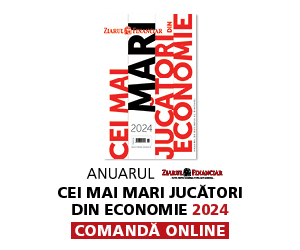Italian imports of men's clothing from Romania dropped 10% in the first eight months of last year, while imports from China grew by 20%, according to the latest report of the textile association of Italy, Sistema Moda Italia.
The trend is confirmed by industry representatives in Romania, who expect even sharper declines in the near future. "Exports of textile products made under contract for Italy and Germany will drop by 20% in the first quarter of 2005," said Maria Grapini, chairperson of the light industry employers association.
She added that the situation would not last long, since it was due to a slow start to negotiations with importers from the European Union.
Germany and Italy are the main countries with which Romania has contracts in the textile sector, and exports to those countries account for 21% and 15%, respectively, out of total textile exports last year of 3.9bn euros.
"Italy was the first country to invest massively in the Romanian textile industry. At the beginning of this year there were not many orders coming in. Maybe this was also because of the recession in the textile industry, which is showing on the German market, as well, and has resulted in a halt to orders," Grapini told Ziarul Financiar.
This year's problem with contracts does not affect major companies, which have stable contracts and relations. Instead it is the small companies that only work with European Union countries from time to time, which are affected. According to Grapini, very few of the 5,000 companies in the textile industry are actually big businesses. The deregulation of the textile trade is hurting Romanian companies, which have much higher prices than Asian companies, especially Chinese and Indian businesses, which are Romania's biggest competitors on the EU market.
"Deregulation will hurt us the most because we cannot cope with the prices from the Asian countries, which are about 50% lower than ours. We do have the advantage of quality products, as acknowledged by our contracting companies in the EU, though," explained Grapini.















































